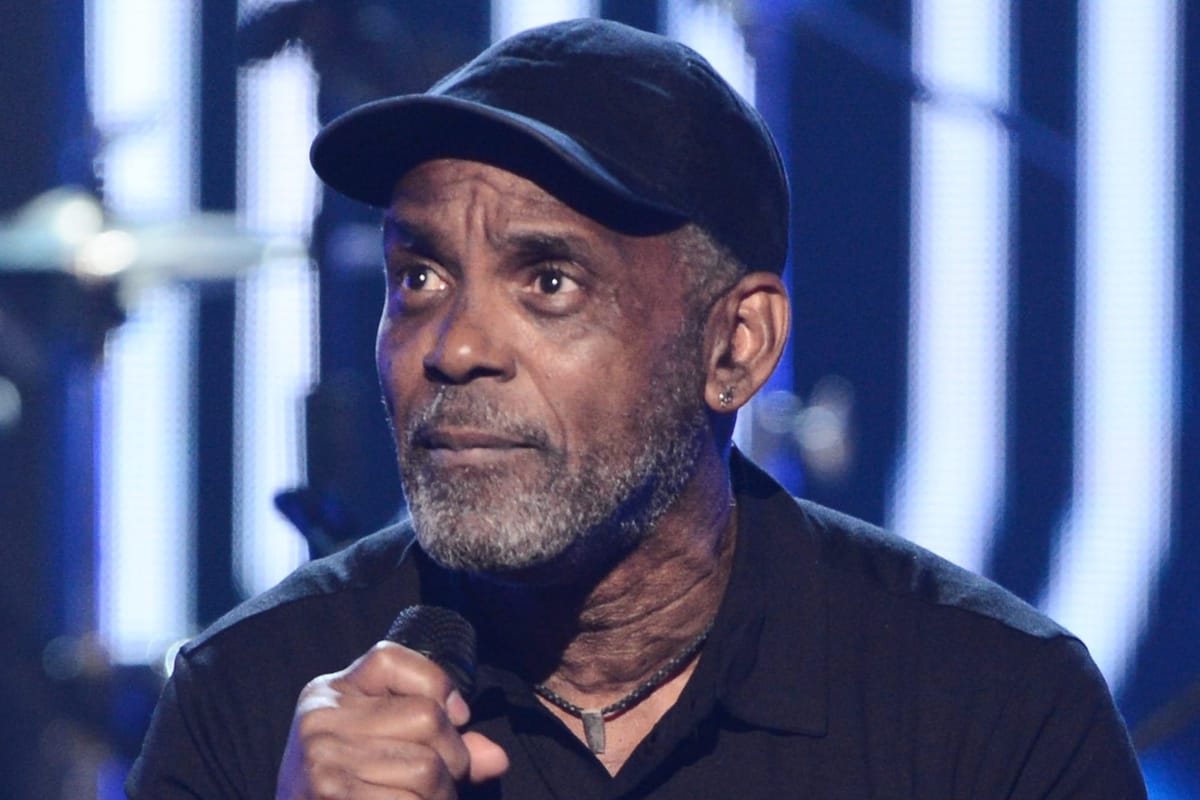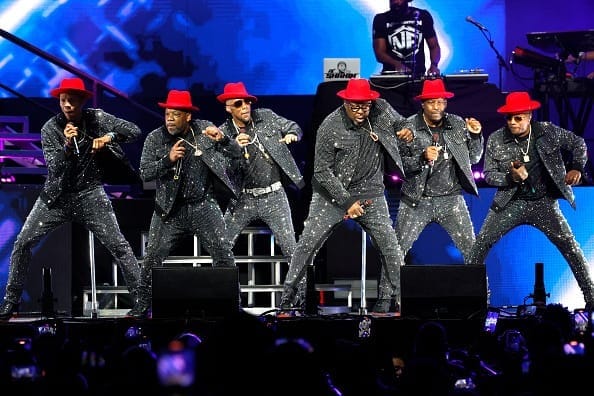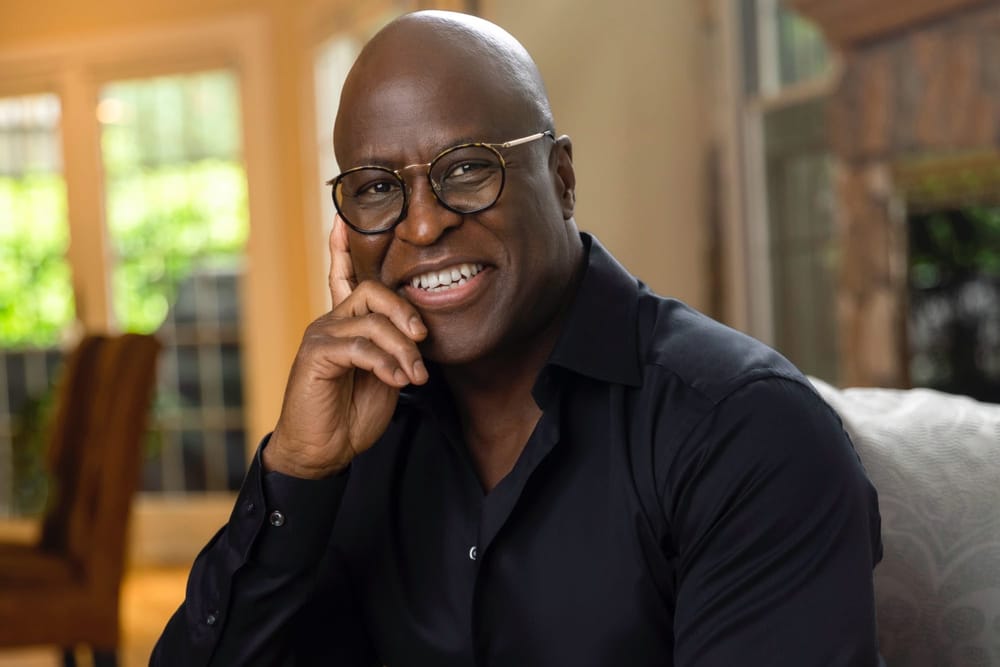Industry OG Morace Landy believes the hardest work for a successful artist begins post music release. The promo man whose work has benefited everyone from Luther Vandross to Trey Songz thinks today’s acts aren’t built for the grind-to-glory path to platinum. But the artists, in his opinion, aren’t solely to blame for hip-hop and R&B’s struggle to create new stars with decades-long careers. A reliance on algorithms and a do-it-yourself ethos has killed the art of artist development.
Landy wants to once again groom artists through his showcase, Vybe Vault RNB. The event is more than an outlet for talent discovery. The big victory is the mentorship that the winners receive post-competition. Paired with industry vets across disciplines, the showcase winners—who are held to a high standard to gain entry—are also on display for labels seeking a pipeline of talent without a spin history.
“[I’ve found this] person, amazing singer, no fear whatsoever,” says Landy, intentionally being vague with his discovery. “He will perform in a train station. He performs in stadiums. He does not care. He will perform anywhere at the drop of a hat.”
That’s definitely not an attribute of a by-the-numbers act.
LEVEL: You’re quite accomplished in the music industry as it relates to promotion. How did you get into the business?
MORACE LANDY: I came into the music industry in the late '80s. Prior to that, I was working as a musician doing Broadway theater. I took a job over at Tower Records to supplement my income because I wanted to build a studio, and I kept getting offers from different labels and kept pushing back on them. I wasn't interested in working at a label at all. An offer came from Profile Records working with Run-D.M.C. My schedule was very flexible, so if I wanted to go on tour, that was never a problem. If I was performing whatever somewhere, they were loose with the schedule, so it worked for me.
What sort of work did you do with Run-D.M.C. while at Profile?
My interaction with Run-D.M.C. was very, very limited, mainly because of what was going on with the company and Run's management. They didn't have the best of relationships, and so they seldom came to the station. I was working on the marketing side, so I started off calling roughly 300 retail accounts across the country, just checking the status on the sales in each market. Then [I] moved on to doing that along with calling college radio—roughly 300 stations there. So I was constantly on the phone, checking reactions on the record. This, of course, is long before SoundScan or anything similar to that.
How was artist development in that time?
Everyone was deeply focused on artist development. What came out of that was a lot of iconic artists. I was blessed to work with Quincy Jones, Chaka Khan. There were just so many artists. Again, there were artists that when you mentioned their name, their name holds huge value because they were setting the pace for everything that was coming after them. I can't say enough about each of them having a body of work instead of just that hot record. These days, a lot of kids just want that hot record and they feel like their world and their life is going to change as a result of that.
Warner Music Group was very focused on developing their talent. So getting an artist in a space where they could do interviews that would help to push their career forward, showing them how to react to different kinds of situations because when an artist is in the space of being interviewed, they can make or break their career right there depending on who they're sitting in front of. Warner groomed the talent and that was really essential. A lot of it goes back to even what so many people learned from Motown. That's what they were known for. And that was one of their greatest contributions to music; being able to groom the talent to the point where they had careers that spanned decades. It's amazing to look at even The O'Jays, who spent 60-plus years in the music industry. Can you point to an artist right now that you can say is going to have a 60-year career? Probably not.

Is artist development the gap you see in the music business?
Oh, it's a non-entity as far as the major labels go. It's not a concern of theirs. And that's fine, because I feel like Vybe Vault is going to fill that void. And I can tell by looking at the responses from the artists that are coming into the fold, in addition to a lot of the executives that I've known over the years, that are looking at what we're doing and they say, "Mo, this is going to scale. This thing is going to really, really take off for you guys." Everybody sees the need for it because there's a ton of talent out there, and the talent that they have can just explode for them if they're showed some of the things, some of the techniques that are needed in order for them to have greater success than they're experiencing right now.
So in addition to Vybe Vault providing a showcase and exposure, is it also taking those artists through a Berry Gordy type of school situation in terms of development?
No. Having an artist show up at a showcase is not unique. What we do outside of that makes all the difference in the world. We have the artist mentorship program that we're doing. For instance, the grand prize winner of the last showcase that we had, Adam Nes, is now being mentored by a Grammy award-winning producer, Troy Taylor, who just happens to be one of our judges. The commitment that Troy makes being a mentor is just to make himself available at least 15 minutes out of each week to talk to an artist, and that is for a period of time, for a month.
Adam is getting groomed from a relationship that was established at the showcase. That’s a huge benefit for sure.
Because Troy sees something in Adam, he chose to play a bigger role in the development of his career. He is committed to writing and producing tracks for Adam's new album. Now that's not something that we expected at all. That's not even something that even came up in discussion. But because of what he saw in Adam, his potential, he felt like he could help him get where he needed to be. It's a huge win because Troy's worked with so many people, from Whitney to Usher. I mean, it's a long list and he's a Grammy Award-winning producer.
It's good for us because he's the poster child for Vybe Vault right now. He's our first artist that's won. So that, and even one of our runner-ups, Jackie Grace, was in the process of releasing a single just prior to coming on Vybe Vault. And her current video was done by our videographer at the showcase.
You said the industry is excited about what Vybe Vault can possibly provide. Are they most excited about the building of a possible pipeline or the organic full-service treatment?
Right now, they see the beginning, so it's the service that we're providing. The pipeline, I think, has yet to be seen because we're now seeing what the pipeline has the potential of looking like just from these two showcases. We just knocked out one and we have seen Adam and a few other people come out of there that are extremely talented and just need a few things to help move them further. I'm floored by some of the people that are going to hit the stage, and we're already getting a glimpse at artists that we want to put on for the [third] showcase.
The level of talent is growing. I think it's growing because we're growing. The talent exists out there, but we're attracting more higher-tier artists. And when I say higher-tier, I'm not talking about artists that may be getting millions of followers. The main thing that we're looking for is the artists that have the ability to be that next iconic act. We want to be the machine that helps to foster those next-level artists that lead the charge.
Is discovery your superpower?
It’s putting the right people together. I've always felt like I was sort of an orchestrator in a sense. Putting the right combinations of people together to bring the most out of people. I always kind of saw myself like that. Even when I was studying music, one thing I always admired was orchestrators. The combination of instruments that were put together like, say, an oboe and a cello, the sound of those two instruments together can be really, really amazing in the right content with the right melody. So it's the same thing with artists.
What is your pinnacle artist promotion moment?
One that really, really sticks out: We did a lot of stuff with Trey Songz when we were working the “Yo Side of the Bed” record. I can't remember who he was doing the tour with; I think it was Miguel. In each market, we would partner with the radio station. The station would pick the winner and Trey would go to that person's house and hang out with them for the afternoon or morning. We had instances where Trey would just be hanging out and the family would cook dinner for them. We did that in a ton of markets.
By the time we were finished and laid that kind of groundwork for Trey, he had ownership of all these stations around the country. So much so that there was one point where we were working three singles. Trey had six records on the chart at one time off the Ready album. The other labels were pissed off at us because we were taking up so much inventory on their playlists.

Would you say the work ethic between those two generations are alike or different?
Night and day, brother. Sadly. And it's a shame that they artist don't get it because, man, they don't realize what they're missing by not putting in that other work. It was so clear that after a time, artists just felt like all they had to do was put out the music and that was it. It was the label's responsibility to do everything else. It was more like, "Okay, we signed to the label. Time for the party to start. Here's my music," and that's it. They felt like they were done.
And that's when the work begins, when you put the music out. They don't realize what they're missing by not doing the other work. That's something that we're also trying to teach the artists that come through Vybe Vault as well. Doing that can change your life and your family's life, putting in that other work.

